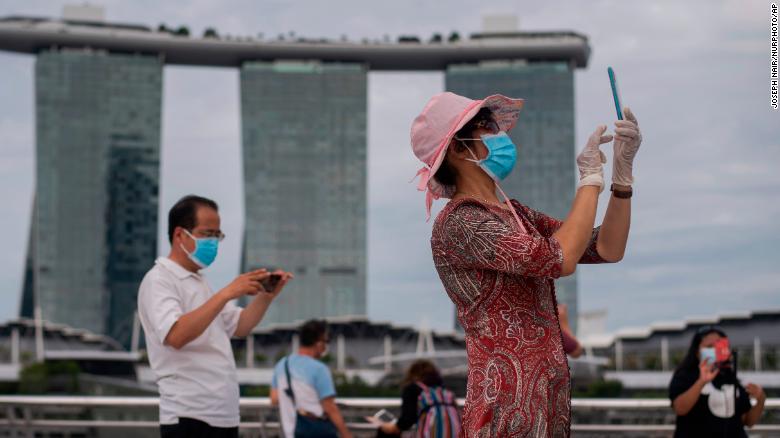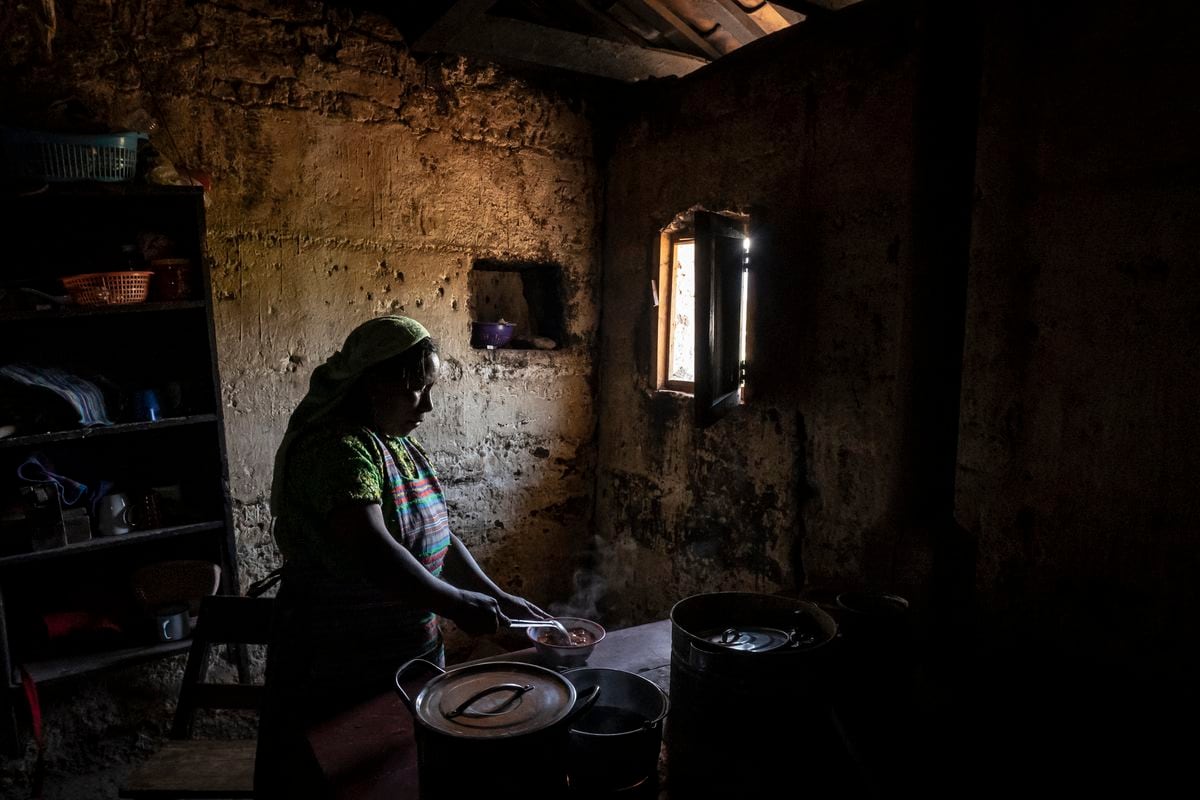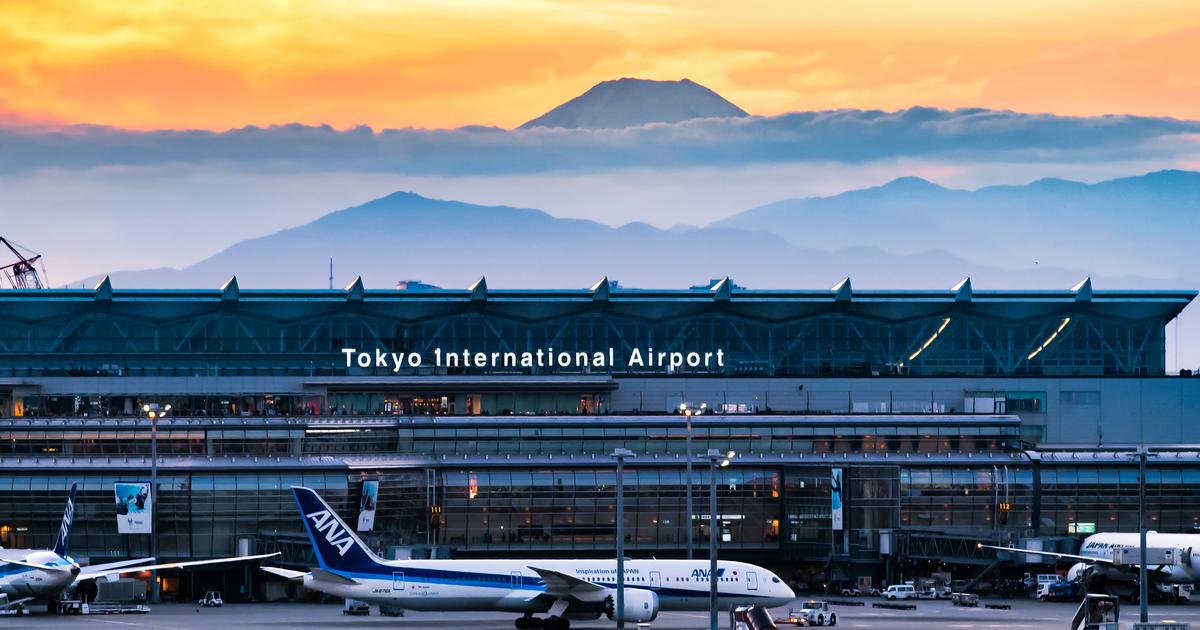Covid-19 will not go away and we will all have to get vaccinated 0:55
London (CNN) -
More than 18 months after the coronavirus pandemic, several countries have decided that it is time to reopen and adopt a model of "living with the covid".
Some have enviable vaccination rates;
others have decided that the costs of continued economic and social restrictions outweigh the benefits.
Here are five countries to watch as they develop their new strategies.
Chile: High vaccination rates open the door to tourists
Chile vaccinates children from 6 years onwards 1:13
Chile has been praised internationally for its smooth and successful vaccination campaign.
According to the latest reports from the Ministry of Health, almost 87% of eligible Chileans are fully vaccinated.
The country has already started distributing booster vaccines to those who are fully vaccinated.
Health authorities on Thursday approved the use of the Chinese Sinovac vaccine for children 6 years and older;
the vaccination started on Monday.
Despite the threat posed by the delta variant, the government announced on Wednesday measures to reopen the country to international tourism as of October 1, just in time for the southern hemisphere country's summer season.
advertising
Do experts recommend vaccinating against covid-19 for children from 6 years of age?
Foreign non-residents may enter as long as they meet certain requirements and isolate themselves for 5 days upon arrival.
"The fact that foreign tourists can come to Chile is an important step for the recovery of inbound tourism," said the undersecretary of Tourism, José Luis Uriarte.
"It is important to note that this is the first step and we can continue to advance as long as we maintain adequate health conditions."
Denmark: The country that declared the end of precautions
People walk through Nyhavn, a colorful harbor popular with visitors, in Denmark's capital Copenhagen on September 3.
The Danish government lifted all remaining coronavirus restrictions in the country on September 10, saying that covid-19 was no longer "a disease that is a critical threat to society."
Danes can now enter nightclubs and restaurants without showing a "covid passport," use public transportation without covering their faces, and meet in large groups without restrictions, essentially returning to life before the pandemic.
The key to Denmark's success lies in part in the vaccination rollout: As of September 13, more than 74% of Denmark's population was fully vaccinated against COVID-19, according to Our World in Data.
The transmission rate, or R rate, is currently at 0.7, Health Minister Magnus Heunicke tweeted on Wednesday, meaning the epidemic continues to decline.
If it is above 1, covid-19 cases will increase in the near future.
If it is below 1, the cases will decrease in the near future.
"Vaccines and the great efforts of all the citizens of Denmark over a long period of time are the basis for us to be doing so well," Heunicke said.
Despite such optimism, Heunicke issued a cautionary note last month when the government announced the planned end date for the restrictions.
"Although we are at a good point at the moment, we are not out of the epidemic. And the government will not hesitate to act quickly if the pandemic again threatens important functions in our society," he said.
Pope Francis is puzzled by the number of people, including Catholics, who refuse to get vaccinated
Singapore: Trying to live with covid, but delta doesn't help
A woman in a mask and gloves takes pictures in Singapore's Marina Bay on Aug. 1, 2021.
The Singapore government announced in June that it planned to move towards a strategy of living with covid, attempting to control outbreaks with vaccines and monitoring hospitalizations rather than restricting lives.
"The bad news is that covid-19 may never go away. The good news is that it is possible to live with it normally among us," Singapore's top covid-19 officials wrote in an op-ed at the time.
Authorities began easing some restrictions in August, allowing fully vaccinated people to eat at restaurants and gather in groups of five instead of two.
But an increase in cases caused by the highly infectious delta variant has put that strategy to the test, prompting officials to pause the reopening.
Officials warned last week that they might need to re-enforce covid-19 restrictions if the new outbreak was not contained.
Singapore's covid-19 task force said it would try to limit the outbreak through more aggressive contact tracing, "fenced in" cases and groups, and more frequent mandatory testing for high-risk workers.
Despite such measures, Singapore on Tuesday reported the highest total number of covid-19 cases in one day in more than a year.
So far, the number of people getting seriously ill remains low thanks to vaccination, authorities said.
Singapore followed an aggressive "covid zero strategy" before shifting its focus, and has one of the highest covid-19 vaccination rates in the world, with 81% of the population fully vaccinated.
In her mother's obituary, a family says her death from covid-19 could have been prevented if people had been vaccinated
Thailand: Slow uptake of vaccines, but opening up anyway
A monk walks past an empty Wat Chedi Luang in Chiang Mai, Thailand, on September 9, 2021.
Thailand plans to reopen Bangkok and other popular destinations for foreign visitors next month, officials said last week, as the Southeast Asian nation tries to revive its crucial tourism industry despite rising infections.
Under the expanded program, tourists who are fully vaccinated against COVID-19 and commit to a testing regimen will be able to enter the capital, Hua Hin, Pattaya and Chiang Mai, according to Reuters.
Phuket Island reopened to vaccinated foreign visitors on July 1 with no quarantine requirements.
On July 15, the country launched a similar program on the islands of Koh Samui, Koh Pha Ngan and Koh Tao, dubbed "Samui Plus".
Although it kept infection numbers low in 2020 thanks to successful containment measures, Thailand has struggled to keep cases under control this year.
Vaccination rates lag behind those of some neighbors.
Just under 18% of the Thai population was fully vaccinated against COVID-19 on September 13, according to Our World in Data, with an additional 21% partially vaccinated.
How is vaccination against covid-19 progressing in Latin America?
See here the rate by country
South Africa: restrictions eased, but delta remains a threat
Shoppers at a market in the central business district of Pretoria, South Africa, on September 14, 2021.
South Africa has begun easing several covid-19 restrictions as infection rates in the country decline.
Among other measures, the nationwide night curfew has been reduced from 11 p.m. to 4 a.m., the size of allowed gatherings has increased to 250 people indoors and 500 outdoors, and restrictions on vending of alcohol have been further reduced.
The relief from the restrictions, announced by President Cyril Ramaphosa on Sunday, is notable in a country that spent much of the pandemic with extremely strict social distancing rules, even banning all gatherings except funerals on occasion, and where vaccination rates remain low.
Ahead of the FDA vaccine advisers meeting, an agency document says the benefit of covid-19 boosters is "limited" if the first and second doses remain effective.
Ramaphosa warned that a devastating third wave of infections driven by the most transmissible delta variant was not over, but added that the country now has enough doses of vaccines to cover the entire adult population, and more than a quarter of adults have received at least one dose.
He encouraged everyone to get vaccinated and comply with the remaining restrictions to allow the country to return to normal.
"The third wave is not over yet, and only through our actions, individually and collectively, will we be able to reduce the number of new infections," he said.
CNN's Ben Westcott, David McKenzie, Henrik Petterssen, and Jack Guy contributed to this report.
Covid-19



/cloudfront-eu-central-1.images.arcpublishing.com/prisa/BUA2NNBCCBACHEPXXR6NIRKCA4.jpg)
/cloudfront-eu-central-1.images.arcpublishing.com/prisa/4PKPLHZOXBG5TEAQ6JNDTUJXBA.jpg)




/cloudfront-eu-central-1.images.arcpublishing.com/prisa/NZ3KWMFSD5GELFE3GLHUROE4FE.jpg)